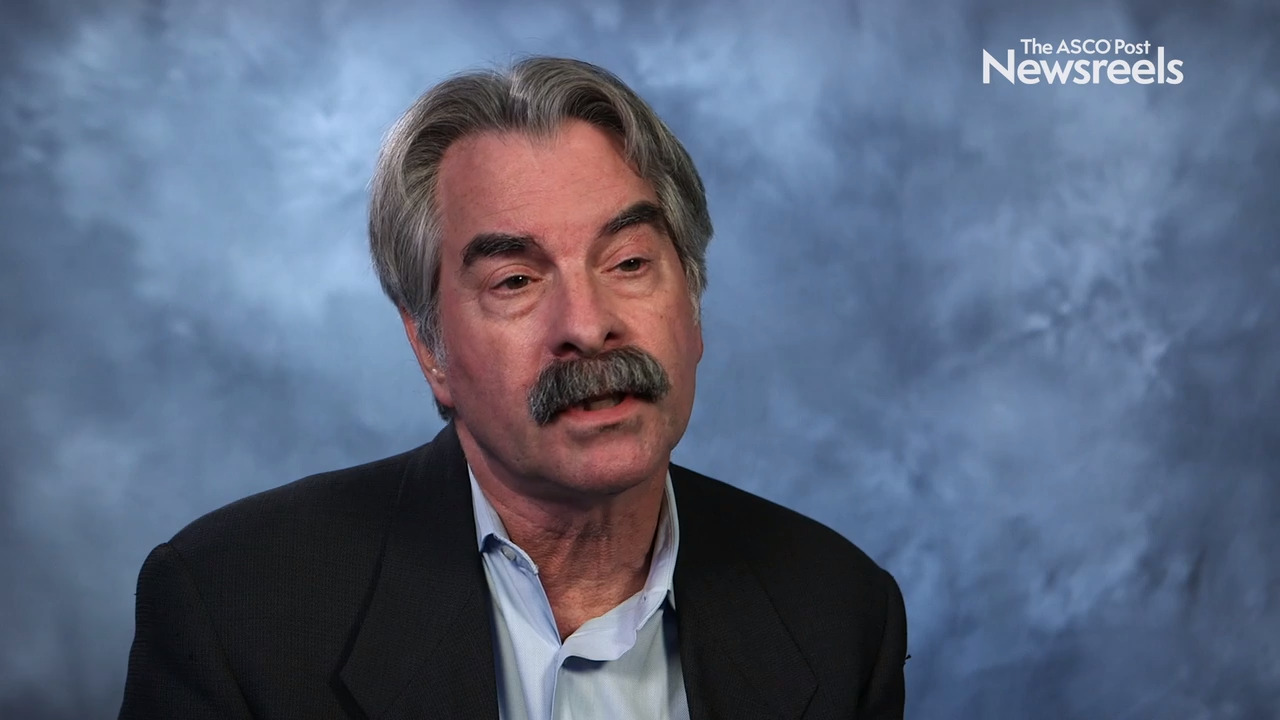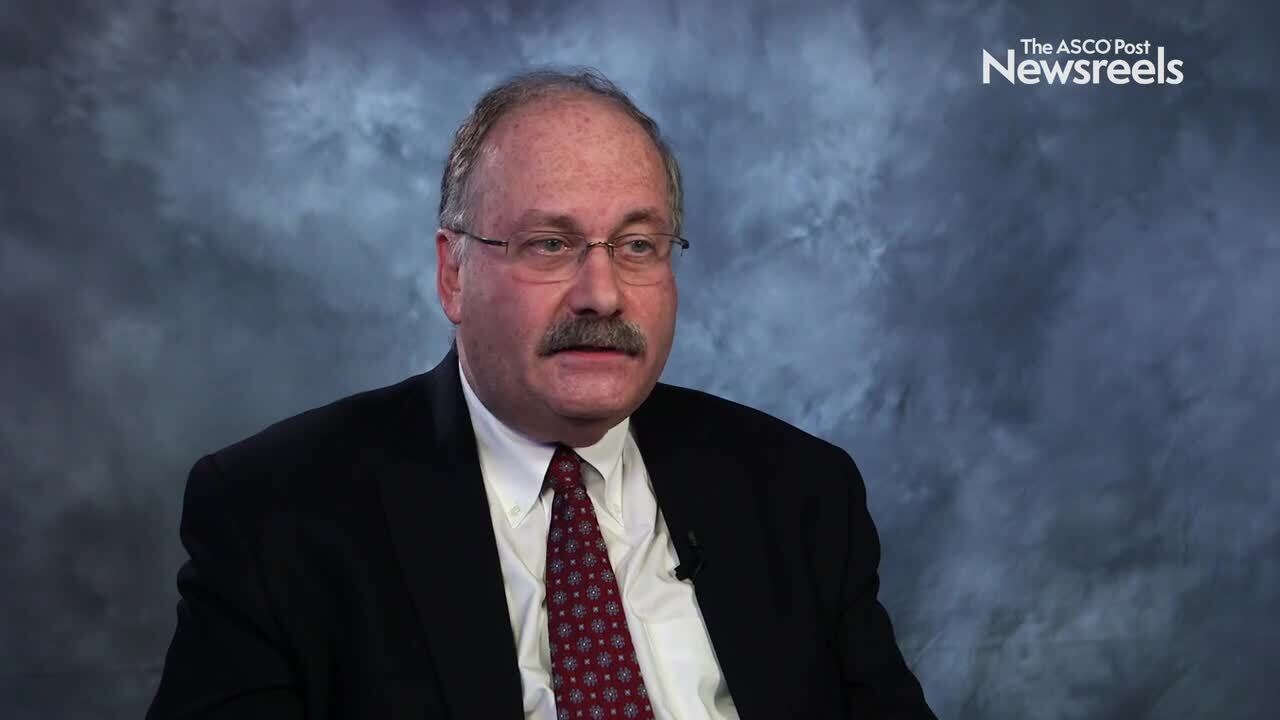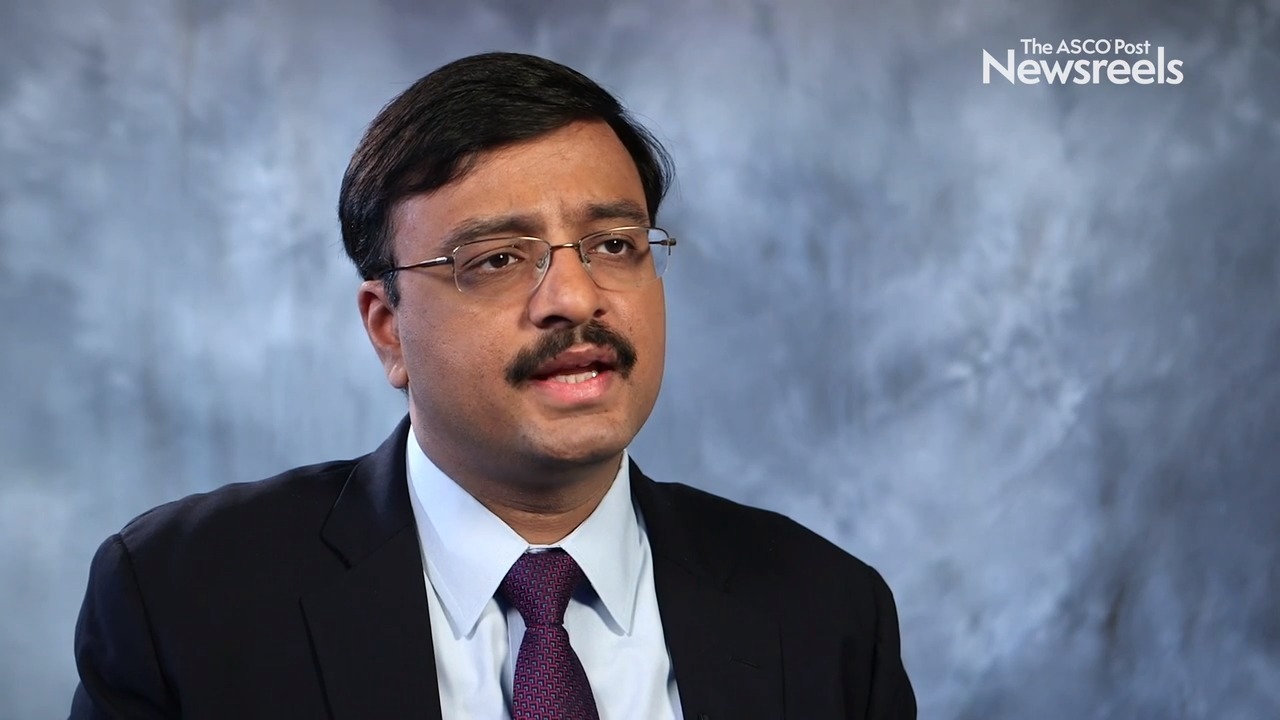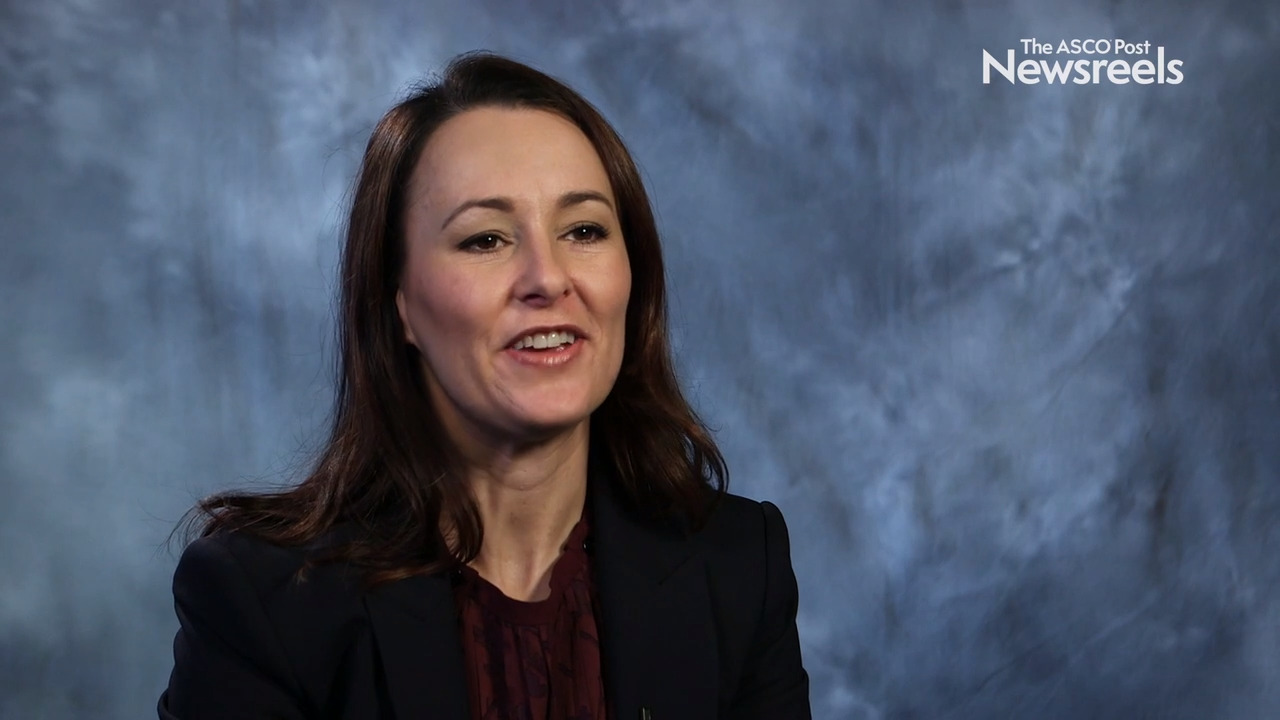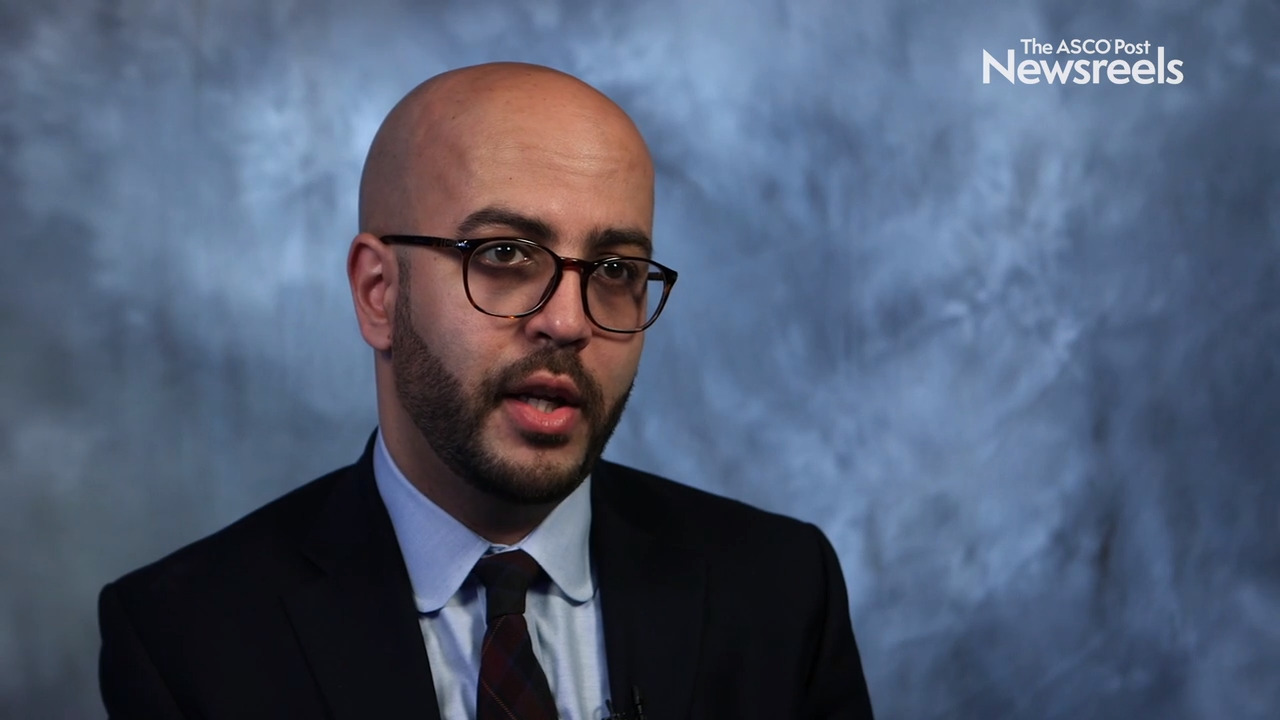Mikkael A. Sekeres, MD, on Newly Diagnosed Hematologic Malignancies: Early Trial Findings on Glasdegib Plus Azacitidine
2019 ASH Annual Meeting & Exposition
Mikkael A. Sekeres, MD, of the Cleveland Clinic, discusses results of a phase Ib study of glasdegib in combination with azacitidine, which showed activity in patients with untreated myelodysplastic syndromes, acute myeloid leukemia, and chronic myelomonocytic leukemia who are ineligible for intensive chemotherapy (Abstract 177).
Jerald P. Radich, MD, of the Fred Hutchinson Cancer Research Center, discusses a gene-expression model that distinguishes patients with chronic myeloid leukemia who achieved a deep molecular response from those with a poor response to treatment. This work could yield new therapeutic targets that could potentially turn a poor responder into a good responder who might even achieve treatment-free remission (Abstract 665).
Edward A. Stadtmauer, MD, of the University of Pennsylvania Abramson Cancer Center, discusses phase I results of immune cells, modified with CRISPR/Cas9 technology, and infused in three patients (two with multiple myeloma and one with sarcoma). Researchers observed the cells expand and bind to their tumor targets with no serious side effects (Abstract 49).
Nitin Jain, MD, of The University of Texas MD Anderson Cancer Center, discusses findings from two studies showing that the combination of ibrutinib and venetoclax is an effective chemotherapy-free oral regimen for patients with high-risk, previously untreated chronic lymphocytic leukemia (Abstract 34).
Loretta J. Nastoupil, MD, of The University of Texas MD Anderson Cancer Center, discusses phase II study findings that showed obinutuzumab in combination with lenalidomide for patients with previously untreated, high tumor burden follicular lymphoma was associated with improved outcomes (Abstract 125).
Mark Bustoros, MD, of Dana-Farber Cancer Institute, discusses phase II study results showing that the combination of ixazomib, lenalidomide, and dexamethasone is effective in patients with high-risk smoldering disease, with a high response rate, convenient schedule, and manageable toxicity. Longer follow-up for disease outcome is ongoing (Abstract 580).
